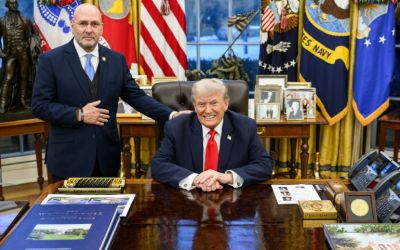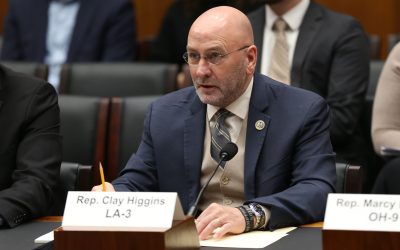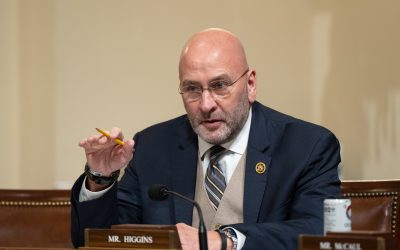RAYNE, LOUISIANA — On Monday, Congressman Clay Higgins and his in-state staff met with the CEO’s of three southwest Louisiana rice mills and USA Rice staff while he was in the district. Congressman Higgins said the goal of the meeting was “to listen and learn more about the Louisiana rice industry.”
Ann Stone of Farmers Rice Mill, Bobby Hanks of Supreme Rice Mill, and Robert Trahan of Falcon Rice Mill attended the meeting and emphasized the critical importance of the rice milling and manufacturing industry to the economic viability of Louisiana. They discussed the opportunities that rice exports provide in supporting the economic health of Louisiana’s farmers and millers and explained how the industry benefits from strong trade agreements such as NAFTA, that represents an 800,000 MT market for U.S. rice.
Bobby Hanks covered some of the challenges the Louisiana rice industry is facing, including the lackluster enforcement of trade agreements.
“The biggest issue is the subsidization of rice in excess of WTO commitments by some of our competitors,” Hanks said.
Higgins acknowledged that WTO rules are being violated and said he will do everything he can to “eliminate the cheating.”
Hanks also referenced the need to keep pressure on the Iraqi government to buy U.S. rice as is outlined in the Memorandum of Understanding on rice purchases between the U.S. and Iraq. Higgins said he would request an opportunity to testify with the subcommittees that have oversight with Iraq to inform them that Iraq has not honored their commitment.
Higgins also discussed the need for normal commercial relations between the United States and Cuba and lifting the trade embargo. Stone thanked him for his support of the Crawford bill allowing U.S. companies the opportunity to sell products on credit to Cuba. Higgins replied, saying, “There must be a competitive base and access to private endeavors that want to buy rice,” and that he considers his office as “the point of the spear in pushing agricultural trade with Cuba.”
The millers also stressed the need to use U.S.-grown rice for food aid rather than just sending difficult-to-track cash to a troubled region.
“There is no reason we should send cash to these countries when we have high quality, enriched commodities like rice to offer,” Trahan explained.
Higgins remarked that while there is clearly a great deal of work to do, he expects that working together with USA Rice would yield results.
“Louisiana has superior products, and the rice industry is among the best-represented in Washington by USA Rice,” Higgins said.



